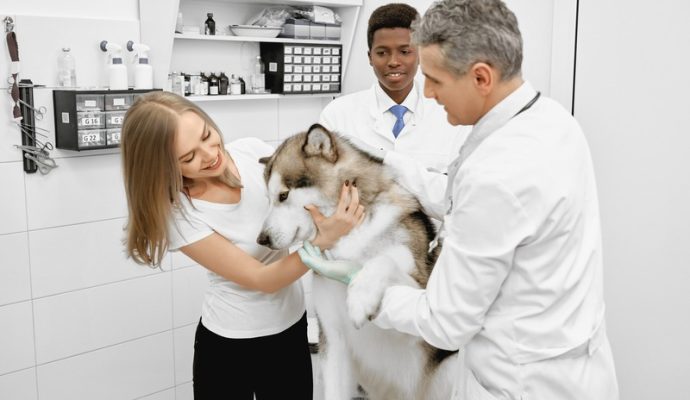Adult pets require a healthy dose of vitamin D, calcium, phosphorus, and healthy lifestyles to maintain bone health. Due to the advancements in the pet food industry and vet sciences, pet owners can now make smart decisions concerning their pet’s nutritional requirements. However, many overlook their pet’s bone health and only react when they develop joint issues.
So how do you keep your dog’s bones healthy to keep them physically active and reduce their risk of arthritis?
How to maintain your dog’s bone health
A pet’s bone health should be a pet owner’s concern and focus. This includes small to large dog breeds generally susceptible to osteoarthritis and developmental bone disorders, which can be debilitating. So we’ve noted five vital techniques to keep their bones in shape and avoid joint-related conditions they might encounter in the future.
1. Keep their weight in check
Overweight or obese canines are at risk of serious health issues. Additional and excessive weight can put too much pressure on their joints and bones, making them uncomfortable moving around and even weakening their bones. Furthermore, overweight canines are the most prone to heart disease, diabetes, hypertension, and urinary bladder stones.
If you’re worried about your dog’s health and suspect various conditions with the signs you’ve been observing, take them to facilities specializing in diagnostic tools. Dog ultrasound can detect early signs of pancreatitis, kidney disease, or conditions affecting the small intestines, colon, liver, and stomach.
2. Exercise them daily
Exercises work wonders for pets that are bone-troubled. Pet parents who live in an urban setting struggle with physical exhaustion from work and lack time to exercise their furry buddies. Pets typically suffer earlier repercussions than their parents, who’re already overstressed. This is why it’s important to regularly exercise your dog to keep them physically active and avoid conditions that might develop from inactivity.
3. Don’t overfeed/underfeed them
Overfed dogs are more prone to joint problems, says numerous vet experts. When you feed your canine too much, they are at risk of obesity and joint problems because they grow faster than the intended timeframe of their appropriate development. But being too cautious may result in many concerns as well. When your furry buddy does not eat enough, they’ll lack the day-to-day vital amount of bone-building minerals and vitamins.
Notice any signs of fractured bone when your pet is moving? Postponing its treatment can make the condition worse. Take them to a veterinary surgery professional quickly to relieve them from pain and restricted motions.
4. Maintain regular veterinary visits
Annual checkups can lessen your furry companion’s risk of costly reactive practices and surgeries to address severe bone issues or terribly progressed joints. This is also why it’s sensible to proactively treat your pet for bone and joint problems. This can be attained by constant regular visits and observing slight changes to your canine’s mobility and general health.
Routinely taking your furry baby to facilities like Carolina Veterinary Specialists Rock Hill can also help address your concerns, as it can be a one-on-one session with them. Furthermore, you’re also helping your furry friend prevent or slow down unavoidable conditions that may develop in time.
5. Provide a well-balanced diet
Diets and supplements advised by vets can help keep your furry buddy’s weight and bone healthy to reduce joint stress. They might also combat nutritional deficiencies and stop inflammatory conditions.




